Presentation of EURAM 2016 Symposia
Dear EURAM members and friends,
Join us in Paris on the 1, 2, 3 and 4 June for the 2016 EURAM Conference and on the 31 May for our Thematic Workshops!
A symposium is a 90 minutes session around a specific topic or problem that engages a group of panellists and encourages presentation of alternatives view as well as a lively discussion with the audience.
Around the theme of our Conference, “Manageable Cooperation?”, we invite you to participate in the symposia sponsored by EURAM SIGs. Please, explore them; discover the issues they tackle, you may even contact the corresponding proponent before the conference in order to choose those debates that you wish to join. You will find more information about each symposium, its proponents and panellists, in the related documents.
Sym 01- Aesthetics, objects and process theory - (Co-sponsored by the SIGs Business for Society and the General Conference) – Mathias Béjean - This email address is being protected from spambots. You need JavaScript enabled to view it.
Originally concerned by reintroducing subjective and sensory experience in organizational life, researches in organizational aesthetics have then opened new ways in which to conceptualize the dynamic relation between form and matter in organizations, the role of aesthetic knowledge and objects in organizational practices, or, more recently, the processes of “formativeness”, a concept which “comes from aesthetic philosophy and [which] denotes the process by which phenomena (for instance an object or a work of art) acquire form within working practices” (Gherardi & Perrotta, 2013, p.1.). Nevertheless, while such focus on form, matter, processes and practices, echoes other research works on processes, objects and artifacts, it seems that the relationships between these various traditions need to be further investigated. To gain insight into this viewpoint, this symposium wants to bring scholars together to engage in questions related to aesthetic, forms, processes, objects and artifacts. Could these notions be articulated despite different traditions? Is this an impossible task or are new notions necessary?
Sym 02 - Art, Entrepreneurship and Resistance - (Co-sponsored by the SIGs Business for Society and Entrepreneurship) – Birgit Helene Jevnaker - This email address is being protected from spambots. You need JavaScript enabled to view it.
This symposium will discuss and reflect on the practices and possibilities – what could happen but also what tend not to happen – in managing when looking at art, entrepreneurship and resistance. Grounded in live encounters in multidisciplinary practices and related philosophizing, we address the human conditions, actions, and fallacies of managing from art, entrepreneurship and resistance perspectives. We will attend to actual practices in individuated and collective performing generally, including art and creative industries, regarded as both an entrepreneurial endeavour and a form of resistance.
Sym 04 - Coaching and Collaboration: Pleonasm or Oxymoron? - (Co-sponsored by the SIGs Business for Society and Organizational Behaviour)-Pauline Fatien-Diochon - This email address is being protected from spambots. You need JavaScript enabled to view it.
As far as collaboration goes, coaching is generating a lot of noise: excitement from the positivist side that portrays coaching as a renewed support for cooperation in organizations; defiance from the most critical that identify the practice with a new tool for compliance and soft domination. Given this intrinsic ambiguity, our panel of prominent international coaching scholars and practitioners will examine the nature of cooperation sustained by and existing within different forms of coaching in organizations, from external coaching to managerial coaching.
Sym 05 - Collective Action, Commons and the Firm: Interdisciplinary Perspectives – Yuri Biondi - (Sponsored by the SIG Business for Society) - This email address is being protected from spambots. You need JavaScript enabled to view it.
Corporate groups and their web of socio-economic and financial relationships are today the dominant form of industrial organisation. They raise overwhelming issues and concerns for both society and nature within which they operate, and their stakeholders (including shareholders): Why do corporate groups exist? How do they operate in economy and society? Which interests should they serve? What are their responsibilities towards stakeholders and the general interest? How should they being controlled and made accountable to their constituencies? This symposium aims to address these fundamental questions by looking at industrial firms and groups as modes of collective action involving commonalities which require specific attention and design for management, governance and regulation.
Sym 06 - Cooperation and Conflict - Philosophy of Management Perspectives - (Co-sponsored by the SIGs Business for Society and the General Conference) - Jacob Dahl Rendtorff - This email address is being protected from spambots. You need JavaScript enabled to view it.
This Symposium will deal with management of cooperation and conflict from the perspectives of philosophy of Management. We will present different philosophical concepts and theories of cooperation and relate them to one another. The main issue is also how to develop new concepts of cooperation in order to deal with conflict and manage cooperation. With this in mind we will look at the concept of cooperation in the perspective of recent and modern theories of philosophy of management. This implies asking questions of cooperation and conflict in relation to important management theories like scientific management, game theory, human relations management, stakeholder theory, post-structuralist management theory and other philosophical management concepts of cooperation.
Sym 07 - Entrepreneurship and Stakeholder Collaboration-(Sponsored by the SIG Entrepreneurship) - Moyra Marval - This email address is being protected from spambots. You need JavaScript enabled to view it.
This symposium discusses the role of different stakeholders and variety of collaboration heuristics in entrepreneurship. It takes a broad perspective, addressing research settings from start-ups and SMEs to established firms. Concepts like effectuation, gift giving, or lean start-up stress the necessity of early interaction with stakeholders and suggest processes for early collaboration. Also, concepts at the organizational level emphasize the idea of open innovation and collective action within and beyond organizational borders. Together with digitalization and globalization, these trends have created an intense discussion about a collaborative and sharing economy. In this context, there is a growing need to further our understanding of collaborative interactions, and more so in the entrepreneurial arena.
Sym 08 - Governance, Collective Action and Social Innovation: Rediscovering the Boundaries of Sustainable Cooperation - (Sponsored by the SIG Business for Society) – Sharam Alijani -This email address is being protected from spambots. You need JavaScript enabled to view it.
The growing pace of globalization and the outbreak of financial crises and scandals have revived a longstanding debate on the importance of global and corporate governance as well as social, political and economic innovation. Governance field studies the principles, processes, and systems by which organizations and institutions are governed. Social innovation refers to the processes and systems of change in social relations as well as the design and development of goods and services in response to market shortcomings. By investigating the principles, components and objectives of social innovation and good governance, this symposium seeks to stimulate debate on the multiple dimensions of governance and social innovation and the boundaries of sustainable cooperation in an increasingly complex business environment.
Sym 09 - Institutional investors and long-term investment - (Sponsored by the SIG Business for Society) – Tristan Auvray - This email address is being protected from spambots. You need JavaScript enabled to view it.
Policymakers and academics agree to say that patient capital is required to avoid short term pressure by financial investors on non-financials corporations (NFCs). Despite of this consensus, frontiers of patient capital are rarely clearly defined while it is now acknowledge that it is the prerequisite of a sustainable long term growth. The aim of this symposium is to identify the barriers of long term investment in accounting and regulation of pension funds and insurance companies on the one hand, and in the behaviour of these institutional investors on the other hand.
Sym 10 - Making history matter for management students - (Sponsored by the General Conference) – Matthias Kipping- This email address is being protected from spambots. You need JavaScript enabled to view it.
Do you believe that history matters? That the renewed interest in history among management scholars should also find its way into the classroom? And that history might help students to become more rounded, long-term oriented managers? This symposium presents examples of the innovative ways in which history is being imparted at three business schools. We will then invite the audience to share their experiences and discuss how to make history attractive to management students and how to overcome possible roadblocks in the (re-)integration of history into management education.
Sym 11 - Mergers and acquisitions: bridging substantive, methodological and conceptual conversations - (Co-sponsored by the SIGs Strategic Management and Organizational Behaviour)– Olimpia Meglio - This email address is being protected from spambots. You need JavaScript enabled to view it.
Mergers and acquisitions attract considerable attention from scholars and practitioners alike. Yet, despite the bulk of research, we seem to know very little about this complex phenomenon. This symposium aims at proposing a different journey into M&As by focusing on issues rather than on functional perspectives to rejuvenate often taken for granted concepts in M&A studies. A range of panellists exploring a variety of M&A issues employing a variety of research methods, in different research settings across the globe offers the potential for a more holistic view of M&A by considering both differences and areas of agreement.
Sym 13 - Leveraging cooperation for more gender equality in management ( Sponsored by the SIG Gender, Race and Diversity in Organisations) - Mounia Utzeri - This email address is being protected from spambots. You need JavaScript enabled to view it.
Whilst there has been appreciable progress in some areas of gender equality, limited progress has been achieved or even stopped in many other fields, in particular in senior management jobs, top wage earners, senior and influential (clout) positions and corporate directorships. Considerable attention has been paid to the reasons for women’s underrepresentation in management. To go beyond the simple description of this bulk of hindrances to gender equality in employment, the symposium intends to shift the focus to alternative, innovative and creative systems of cooperation. The scope of the symposium is to discuss several forms cooperation which can bear within and outside organisational boundaries. We are searching for the old and new agents of these emergent types of cooperation, encompassing different borders, cultures and economic sectors.
Sym 14 - Positive and Negative Organizational Studies (Sponsored by the SIG Business for Society) – Miguel Pereira Lope - This email address is being protected from spambots. You need JavaScript enabled to view it.
The previous decade has witnessed a growing interest in the topic of "Positive Organizational Studies". EURAM and AOM Conferences have reflected that trend by convening symposia on topics related to the study of positive issues in organizations, such as gratitude, positive emotions, positive leadership or positive psychological capital. However, negative topics such as mobbing, negative emotions, entrenchment, machiavelism, and others are now raising interest from academics. In addition, several studies are now being publish that reflect another interesting issue, that of the interplay between negative and positive in organizations and workplaces. As such, the goal of this symposium is to create the academic platform to critically analyze positive and negative organizational studies and the possibilities of studying their joint effects in a more comprehensible perspective.
Sym 15 - Project management and entrepreneurship (Co-sponsored by the SIGs Project Organising and Entrepreneurship) – Christophe Midler - This email address is being protected from spambots. You need JavaScript enabled to view it.
In practice, entrepreneurship and project management show clear convergences: entrepreneurs establish and grow their firms as temporary endeavours. Big organizations expect entrepreneurial spirit in various kinds of projects. Entrepreneurship and project management are both related to opportunities, innovation, learning processes, and coping with risk and uncertainty.
However, in research, the development of these two fields has been, up to now, largely parallel and unrelated tracks. The purpose of this symposium is to integrate the segregated communities and to stimulate debates and cross-disciplinary learning on the conceptual, methodological, and pragmatic level between researchers in project organizing and entrepreneurship.
Sym 17 - Strategic Followership - (Co-sponsored by the SIGs and Organizational Behaviour and Strategic Management) – David Zoogah - This email address is being protected from spambots. You need JavaScript enabled to view it.
Strategic followership, a bottom-up approach to value-creation, is an emerging area that complements strategic leadership. In this era of bad (unethical and ineffectual) leadership by executives, strategic followership represents the counteractive responses that act to restore or enhance relational value (i.e., value to stakeholders in the relational interface). In this symposium, the panel members explore topics that relate to the major dimensions of strategic followership. In this symposium, five researches that examine different elements of strategic followership are discussed: Strategic Role Systems: Strategic Management Perspectives; Does your thinking style moderate your decisions and strategic behaviours; A Multidimensional scale to measure Strategic Followership; Understanding leaders through followers: active and passive followership.
SYM 18 - Strategic Renewal: Understanding Non-technological Innovation in Service Firms - (Sponsored by the SIG Strategic Management) – Carlos Martin-Rios - This email address is being protected from spambots. You need JavaScript enabled to view it.
This symposium seeks to advance our understanding of what drives strategic renewal in service firms. We aim at developing a more integrative and comprehensive conversation about the antecedents, characteristics, and output of strategic renewal in service firms by means of non-technological innovations. We draw here on the finer categorization of non-technological innovation as one that helps renewal within the service firm’s core business model and internal processes. By combining innovation research with the strategy domain, strategic renewal in the service industry aims at improving the critical review and integration of theories of service transformation, advancing our understanding of the complexity and mechanisms of non-technological innovation in a variety of organizational levels (industry, firm, team, and individual), and combining approaches and methods (quantitative and/or qualitative).
Sym 20 - Toward Responsible practices in the organizations: the role of affinity groups, diversity networks and management of trust (Co-sponsored by the SIGs Business for Society and Gender, Race and Diversity in Organisations) - Maria Giuseppina Bruna - This email address is being protected from spambots. You need JavaScript enabled to view it.
Western countries are bogged down in economic instability and sluggish growth, with serious social implications, the confidence crisis is systemic, deep and lasting. As a key driver of wealth creation, secondary socialization and social regulation, labour feeds-up the being-in-society. Thus, recreating the conditions of trust in the organizational field is: a political urgency (which questions the effectiveness and efficiency of social links and the foundations of living together), a categorical imperative (which invites reconsidering the relationship with Self, the Others and the groups), a strategic tool (through a renewal of the confidence cycle, gathering the company and its employees through a “gift of trust” granted by the management, appreciated as a "Pascal's wager" and a strategic investment), a performance-key (development of "self-confidence", “hetero-confidence” and stimulation of creative cooperation). The development of affinity groups and pro-diversity networks contribute to redefining the phenomenology, the ways and the spaces of socialization and cooperation at work. They participate into the “design” a new responsible management of cooperation and mending the confidence pact. Our symposium will address, through a systemic and multi-dimensional perspective, the dissemination of responsible practices, through the development of diversity networks, affinity-based socialization and management of trust into the companies.
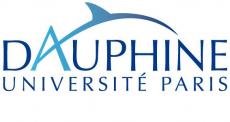 |
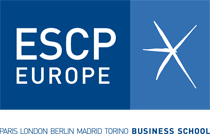 |
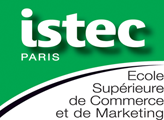 |
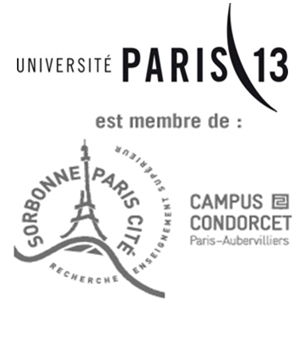 |
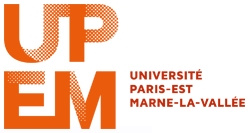 |
|
| |





